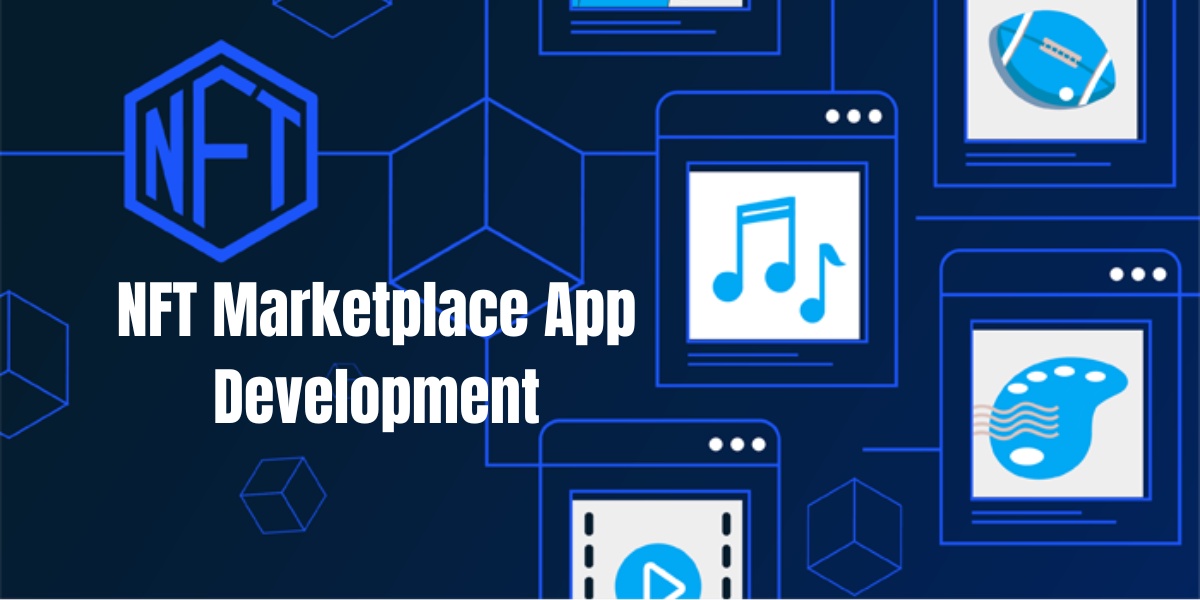The blockchain revolution continues to evolve, and one of its most exciting facets is Non-Fungible Tokens. NFTs have taken the world by storm, reshaping the way we think about ownership and digital assets. As the demand for NFTs soars, NFT marketplace app development has become a hot topic in the tech industry. In this blog, we'll delve into the world of NFTs, explore the development of NFT marketplace apps, and share insights to help you craft the next blockchain revolution.
Understanding NFTs
Before diving into NFT marketplace app development, it's essential to grasp what NFTs are. Non-Fungible Tokens are unique digital assets that represent ownership of a specific item or piece of content, typically on the blockchain. Unlike cryptocurrencies like Bitcoin or Ethereum, NFTs cannot be exchanged on a one-to-one basis because each one is unique. This uniqueness is what gives NFTs their value and appeal.
NFTs have gained popularity in various domains, including digital art, music, gaming, collectibles, and virtual real estate. They offer creators a new way to monetize their work and provide collectors with proof of ownership for digital assets.
NFT Marketplace App Development
Creating an NFT marketplace app involves several key steps and considerations. Here are some insights into the process:
- Choose the Blockchain: The first decision you'll need to make is which blockchain to build your NFT marketplace on. Ethereum is currently the most popular choice, but other options like Binance Smart Chain and Flow have gained traction. Each blockchain has its own set of features, fees, and user bases, so choose wisely.
- Smart Contracts: Smart contracts are at the heart of NFTs. These self-executing contracts automatically facilitate the buying, selling, and transferring of NFTs. Solidity (for Ethereum) and Cadence (for Flow) are commonly used programming languages for creating NFT smart contracts.
- User Authentication: Implement secure and user-friendly authentication methods, such as OAuth or decentralized identity systems like MetaMask, to ensure user privacy and security.
- Wallet Integration: Users need a digital wallet to store and manage their NFTs. Integrating popular wallets like MetaMask or Trust Wallet into your app will enhance the user experience.
- User Interface (UI) and User Experience (UX): Design an intuitive and visually appealing interface that makes it easy for users to browse, buy, and sell NFTs. Consider features like search filters, categories, and a responsive design for mobile users.
- Minting NFTs: Allow users to mint (create) their own NFTs within the app. This feature empowers artists and content creators to tokenize their work and reach a global audience.
- Gas Fees: Gas fees can be a significant concern on blockchain platforms. Find ways to optimize and minimize these fees, as they can affect user adoption and retention.
- Licensing and Copyright: Address legal concerns related to licensing and copyright. Ensure that your platform has mechanisms to verify ownership and protect intellectual property rights.
- Marketplace Governance: Consider implementing decentralized governance mechanisms that allow users to have a say in the platform's development and rules.
- Scaling Solutions: As NFT marketplaces grow in popularity, scalability becomes crucial. Explore Layer 2 solutions or other scaling technologies to handle increased traffic and transactions.
Marketing and Community Building
Building a successful NFT marketplace app doesn't end with development; you must also focus on marketing and community building:
- Partner with Artists and Creators: Collaborate with artists, musicians, and influencers to bring exclusive content and users to your platform.
- Social Media and Online Presence: Utilize social media platforms and forums like Twitter, Discord, and Reddit to engage with the NFT community and promote your app.
- Educational Content: Create educational content that explains NFTs, your marketplace, and how users can get involved. Webinars, blog posts, and video tutorials can be helpful.
- Feedback and Iteration: Actively seek feedback from users and make continuous improvements to enhance the user experience.
Challenges and Considerations
While NFT marketplace app development offers immense opportunities, it also presents challenges:
- Competition: The NFT marketplace space is highly competitive. To stand out, you'll need a unique value proposition and a strong marketing strategy.
- Security: Security is paramount when dealing with digital assets and blockchain technology. Thoroughly audit your smart contracts and implement robust security measures.
- Regulatory Compliance: Keep an eye on evolving regulations related to NFTs and cryptocurrencies. Ensure your platform complies with local and international laws.
- Sustainability Concerns: The environmental impact of blockchain technology, particularly Proof of Work (PoW) blockchains like Ethereum, is a growing concern. Consider the environmental implications and explore more eco-friendly blockchain alternatives.
Conclusion
NFT marketplace app development is a leading edge of the blockchain revolution, offering remarkable opportunities for artists, creators, and entrepreneurs. This endeavor, however, demands meticulous planning, technical prowess, and a deep understanding of the blockchain realm. The key lies in choosing the right blockchain, ensuring the secure implementation of smart contracts, prioritizing an exceptional user experience, and actively engaging with the community. By remaining adaptable, fostering innovation, and adhering to ethical principles, your NFT marketplace app can play a pivotal role in shaping the future of digital ownership, becoming an essential part of the ever-evolving blockchain ecosystem.


No comments yet